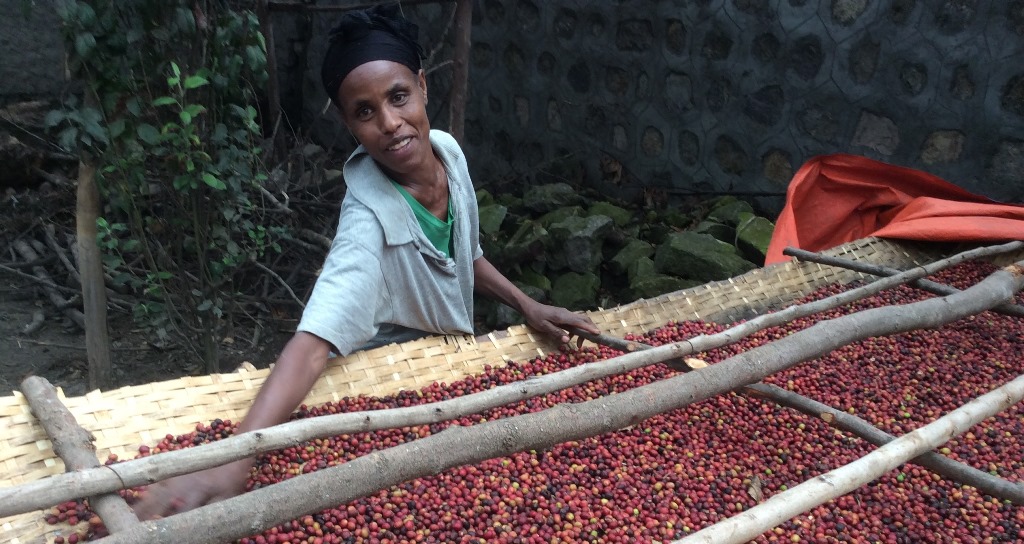Ethiopia has built more than 15,000 bio-digesters since 2009. They have changed the lives of women not only by providing clean energy, but also by freeing up their income to invest in profitable businesses.
Women and girls play critical roles in supplying household fuels in countries like Ethiopia, where 95 per cent of households depend on biomass energy sources. To find fuel, rural women and girls travel long distances, sometimes risking their safety. The situation is not that much different in urban areas, where 80 per cent of households generate energy from biomass. In both areas, access to clean and alternative energy solutions are limited and households have to spend a considerable amount of either time or money on biomass.
Tesfanesh Bekele, a mother of eight and a resident of Wendo Genet district in the Southern Nations Nationalities and Peoples’ Region (SNNPR) of Ethiopia, used to spend more than 635 Ethiopian Birr (ETB) a month on average to buy charcoal and firewood for cooking and heating. However, the bio-digester installed in her house in 2011 has changed her life significantly .
Since then, she has been using biogas from the digester for cooking and lighting. Having a bio-digester has enabled the family to cook in a smoke-free kitchen, diversify their agricultural activities and save money they otherwise would have spent on charcoal and firewood. The family also uses bio-slurry from their bio-digester for composting, which has not only increased the family income from the sale of organic produce, but also reduced their expenses for chemical fertiliser.
Annually, Tesfanesh saves ETB 7,626.70 on energy, ETB 1,500 on fertiliser, and earns an additional income of ETB 43,090 from the sale of coffee, bananas and bio-slurry compost. With her increased income, she can further invest in coffee production.
“The income from coffee is attractive. I am planning to rent more land to grow coffee,” said Tesfanesh. To help her and the family’s business expand, she has persuaded her husband and three sons to set up a honey cooperative, Mechal Mar. The sons have already established a metal works enterprise. They say their mother is really helping them develop a business mentality and motivates the entire family to better their lives.
Before 2011, they had limited income, and Tesfanesh thought a bio-digester would put an additional burden on her busy schedule. However, a clear explanation from the staff of the regional biogas coordination unit about the benefits of bio-digesters, including the co-product, bio-slurry, changed her mind.
“Biogas transformed my family. I produce, consume and sell organic produce such as coffee, bananas, false bananas vegetables, maize, teff, and honey,” Tesfanesh states with pride.
The National Biogas Programme of Ethiopia (NBPE) has supported the construction of 15,491 digesters in 34 Woredas (districts) to date.
Since 2016, the introduction of a biogas-run Injera Mitad – a stove with a wide pan for baking Injera, a staple food in Ethiopia, has also contributed substantially to minimising cooking fuel costs and exposure to smoke for Ethiopian families. Ethiopian households use about 60 per cent of the total household energy for baking Injera.
Farmers like Tesfanesh continuously prove that the role of women in energy is critical in climate change mitigation mechanisms. Through its partnership with the Africa Biogas Partnership Programme, Hivos East Africa has enabled many women like Tesfanesh to increase the uptake of biogas-based renewable energy in their communities.




